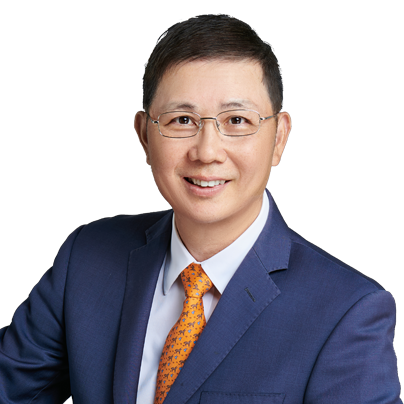China Stem Cell&Gene Therapy Opportunities for Foreign Investors
China Stem Cell&Gene Therapy Opportunities for Foreign Investors
1.1.Car-T Cell Therapy – Ready to Go
Early in 2014, Legend Biotech, a company under GenScript, established its fully owned foreign invested subsidiary in Nanjing, named Nanjing Legend Biotechnology Co., Ltd. (“Nanjing Legend") Following Legend Biotech, US CAR-T developer Juno Therapeutics Inc. (a Bristol-Myers Squibb company) and WuXi PharmaTech Inc. formed an offshore joint venture and then established its wholly owned subsidiary in Shanghai in 2016, named JW Therapeutics (Shanghai) Co. Ltd. (“JW Therapeutics"). In 2017, Kite Pharma Inc. (a Gilead company) formed a PRC onshore joint venture with Fosun Pharmaceuticals in Shanghai FTZ, named Fosun Kite Biotechnology Co. which is owned 50% by Kite Pharma and 50% by Fosun (“Fosun Kite"). These three firms have become BIG NAMES in the cell therapy industry in China.
At the end of 2017, Nanjing Legend’s application for investigational new drug was accepted by the then China Food and Drug Administration (“CFDA", the predecessor of NMPA). Nanjing Legend shall be eligible to commence clinical trial of its proprietary CAR-T cell technology to treat multiple myeloma in the People’s Republic of China and became the first Chinese CAR-T company to receive Investigational New Drug approval in China. In January 2018, JW Therapeutics through its PRC affiliate Shanghai Mingju Biotechnology Co., Ltd. which is a Chinese local company, completed the application for investigating new drug for its CD19 T-cell therapy. In August 2018, Fosun Kite also completed its application for CD19 T-cell therapy with CDE under NMPA in China.
1.2.Human Stem Cell & Gene Therapy – Practical Approaches
1.2.1.VIE Control Arrangement
In accordance with China’s latest version of foreign investment negative list effected on 30 July 2019, development and application of human stem cell, gene diagnosis and therapeutic technologies are prohibited to foreign investment. However, some foreign stem cell developers have established business onshore in China through a series of control documents linking the offshore with the onshore operation under the so-called variable interest entity structure (VIE structure). In the past two decades, VIE structure as a market practice has been recognized by some Chinese authorities in capital market listing. For the purpose of bypassing restriction or prohibition on some business by foreign investment, a local company permitted to conduct such business nominally held by Chinese shareholder(s) (“Operation Company") may be controlled through a series of contracts by a foreign invested vehicle in China ("Controlling Company"). The profits of such Operation Company would flow back to the Controlling Company and then ultimately be consolidated by the foreign investors. VIE structure is recognized in IPOs on major stock exchanges markets such as NASDAQ, NYSE and HKEX. Typical VIE structure is illustrated as follows:

In practice, VIE Agreements may include (i) Consulting and Service Agreement; (ii) Voting Rights Agreement or Proxy; (iii) Call Option Agreement; and (iv) Equity Pledge Agreement, etc.
Recently in late 2019, Sino-life Group Limited (08296), a company listed on Hong Kong Stock Exchange, announced an equity purchase transaction in respect of Guangdong Xtem Biotechnology Co., Ltd. as an Operation Company subject to VIE structure. This Operation Company mainly engages in the research, production and sales of products of stem cells including different types of functional cell and provision of tailored technical services on stem cells to customers. An illustrating chart of the post-closing structure is set out below:

For the VIE Structure, good news is that the newly promulgated Foreign Investment Law of China and its implementation rules effective as of January 1, 2020 do not invalidate such VIE structure. Therefore, we do not foresee an imminent crackdown of VIE structure as a prevailing practice for foreign investment in stem cell and gene therapy in China.
1.2.2.Roundabout by Licensing Arrangement
Apart from investing in existing human stem cell therapy plants in China through the VIE structure, foreign investors who wish to develop their own stem cell and gene therapy pipeline in China may adopt an alternative approach by licensing out to a Chinese local company acting as an operating front desk for the research and commercialization of such product in China (“Front Desk"). For control of operation of the Front Desk, there should be collaboration agreement and others in place between the Front Desk and the foreign invested vehicle by foreign parent company. A brief illustration of the structure is set out below:

The Front Desk may raise fund from RMB financial investors to support its operation and make payment of upfront license fee, milestone and royalty payments to the foreign investor under the license agreement. The local company may be required to highlight the brand name of the foreign licensor. The local company acts more like a sales agent of the licensor than a licensee of such stem cell or gene therapy.
There have been successful cases of licensing human stem cell pipeline from foreign developers. In 2018, a UK based pioneering stem cell therapeutics company licensed two of its stem cell therapy products to a famous Chinese pharmaceuticals company. An ASX-listed Australian cellular medicines firm agreed to license exclusive China rights of two of its stem cell products on congestive heart failure and acute myocardial infarction to a Chinese licensee for development, manufacturing and commercialization. There has not been any disclosure on collaboration arrangement for the first license transaction. In respect of the latter transaction, a commercialization agreement has been disclosed but, except for a steering committee mechanism, no other relevant detailed collaboration arrangement is disclosed.
2.1.Efforts to Lift Restriction by Local Governments
In August of 2019, Shanghai Municipal Government promulgated Several New Measures to Further Open Up the Service Industry of Shanghai as an effort to promote downsizing the negative list of industries forbidden to foreign investment. For the first time, it has been explicitly stated that the government is “striving to grant permission to foreign investment in research and application of technologies in human stem cell and gene therapy". The statement is eye-catching and trail-blazing. So far, no detailed rule has been issued yet to implement such policy.
Following an official notice by State Council at the end of 2018 on encouraging medical institutions in free trade zones to conduct research on stem cell technology, a number of local governments such as Guangdong, Chongqing, Zhejiang, Shenzhen, Hainan, Yunnan, Heibei, Nanjing, Suzhou etc. issued policies to promote stem cell and gene therapy research in specified free trade zones. For instance, in China’s southernmost Hainan Province, a drastic move is on the way by permitting foreign-approved stem cell therapy (or product) to be directly put into application in International Medical Tourism Zone of Bo’ao (the “IMTZ"). We noticed a draft IMTZ rule on clinical research and application of stem cell therapy (the “IMTZ Rule") is in circulation on public media. Pursuant to such IMTZ Rule, stem cell products approved with market authorization in developed countries, yet to be registered with NMPA, can be put in use in medical institutes within IMTZ subject to special approval by competent authorities of Hainan Province. IMTZ Rule further provides that collaboration between medical institutions within the IMTZ and stem cell research organizations from developed countries are highly encouraged.
2.2.New Genetic Data Protection Rule
Effective as of July 1, 2019, a new rule regulating the collecting, storing and transporting of genetic samples and materials in China has been released to set new limits on international companies looking to conduct work with biologic and gene therapies. In particular, the regulations stipulate that (1) research projects involving human genetic resources should be conducted in cooperation with Chinese partners and subject to governmental approvals; (2) governmental approvals should be obtained prior to transfer of human genetic materials abroad; (3) IPs generated from using human genetic resources should be shared with Chinese partners; and (4) human genetic material should be deemed as an important strategic resource of China and national security review and state secret review may be conducted on activities related to human genetic resources. We are actively liaising with Human Genetics Resources Administration of China (the “HGRAC"), the top regulator of human genetic materials and information, and are working with clients on issues like registration of international genetic companies in research collaboration, legal formalities on registration of outbound transmission of genetic data, formalities of approval of exporting genetic materials, IP and data protection matters.











